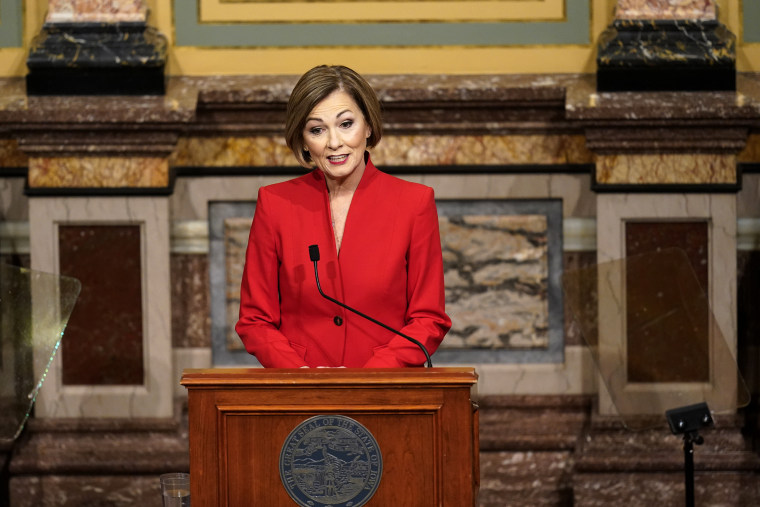The New York Times' David Leonhardt summarized the landscape nicely: "Republican legislators in dozens of states are trying to make voting more difficult, mostly because they believe that lower voter turnout helps their party win elections. (They say it's to stop voter fraud, but widespread fraud doesn't exist.) The Supreme Court, with six Republican appointees among the nine justices, has generally allowed those restrictions to stand."
His piece quoted a recent assessment from University of Florida political scientist Michael McDonald, who wrote, "I don't say this lightly. We are witnessing the greatest roll back of voting rights in this country since the Jim Crow era."
Much of the recent attention has focused on Georgia, and for good reason: the Republican-led state government responded to some unexpected defeats in last year's election cycle by rushing to pass indefensible new voting restrictions -- scaling back voting-access laws that Georgia Republicans endorsed just a few years ago.
But as we were reminded yesterday, the problem is not limited to Georgia.
Iowa Gov. Kim Reynolds on Monday signed into law a Republican-backed bill that makes it harder to vote early, potentially eroding a key aspect of Democratic campaigns. Republicans in the House and Senate quickly approved the voting changes over the opposition of all Democratic legislators. Republicans said the new rules were needed to guard against voting fraud, though they noted Iowa has no history of election irregularities and that November's election saw record turnout with no hint of problems in the state.
This is a classic example of Republicans rushing to fix a problem that doesn't exist. The integrity of Iowa's elections is not in doubt, and was never called into question. Indeed, GOP candidates fared quite well in the Hawkeye State in 2020: Donald Trump carried the state easily; Sen. Joni Ernst (R) won re-election by a larger-than-expected margin; and Republicans even flipped two of the state's four U.S. House seats.
There wasn't even a hint of fraud in Iowa. The state's electoral system is sound; it worked just fine; and far-right candidates benefited.
But Iowa Republicans decided success wasn't good enough. Their new law cuts the state's early voting period for no reason, and lowers the amount of time polls will be open on Election Day. As the Des Moines Register explained:
The law cuts Iowa's early voting period from 29 days to 20. Polls will now close at 8 p.m. for state and federal elections instead of 9 p.m. It significantly tightens the rules for when absentee ballots must be received by county auditors in order to be counted. Ballots must now arrive by the time polls close in order to be counted. Previously, ballots placed in the mail the day before Election Day could be counted as long as they arrived by noon the following Monday.
State Rep. Bobby Kaufmann (R-Iowa), who helped sponsor the bill, recently argued, "The ultimate voter suppression is a very large swath of the electorate not having faith in our election systems, and for whatever reason, political or not, there are thousands upon thousands of Iowans that do not have faith in our election systems."
I wish this made more sense. What the GOP legislator is arguing in effect is that "thousands upon thousands of Iowans" believed lies, so it falls to state government, not to tell people the truth, but rather to make it harder for Iowans to participate in their own democracy.
Reality be damned, Americans should expect considerably more efforts along these lines. Fox News reported yesterday that Heritage Action for America, an activist group tied to the Heritage Foundation think tank, is moving forward with plans "to spend at least $10 million on efforts to tighten election security laws in eight key swing states. "
The report added that Heritage Action is specifically targeting Arizona, Florida, Georgia, Iowa, Michigan, Nevada, Texas, and Wisconsin.
Watch this space.

